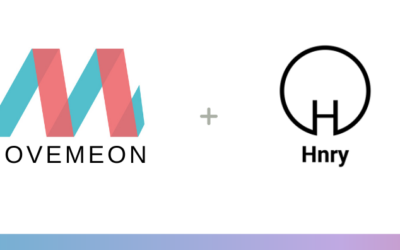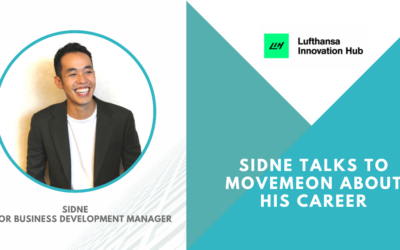Daniel Scott, CBO & Co-Founder at Osu shares his career journey and his experience using Movemeon.com
Interested in working at Osu? Click here to view live roles
—
How did you get into consulting?
I think mine is the story of a lot of consultants, which is that you start in consulting not entirely sure what it is you want to do long term. For me, consulting was an excellent professional experience, and I loved every second. I worked on good projects alongside great people. If you’re naturally inquisitive, then any industry or function is interesting provided you put in the time and effort. It’s a good way to get exposure to different businesses in a short timeframe.
Ultimately I really enjoyed working as part of a small team, made up of smart, hard-working people who also looked out for each other. And the skills of understanding a problem, developing a framework to help solve it, and then executing against that by working with others to deliver lasting impact, not just a PowerPoint, are extremely transferrable.
Why did you decide to leave BCG?
When I started in consulting, as is the case for most associates, I was young and highly mobile, i.e. excited to hop on a plane at short notice! But as you get older you develop relationships, friendships, and attachments that mean your priorities change and your enthusiasm for travel isn’t the same. In my case, I wanted to be present to put my kids to bed each night. Of course, consulting has come a long way, and there are some great initiatives in my place to address this challenge, but I think it’s common for consultants to reach a stage where your professional life and your personal life aren’t quite as compatible as you’d want them to be.
When I was thinking about leaving consulting I had two main avenues – one was corporate strategy, which made a lot of sense because these were the clients I’d been working with – and the other was the startup/VC world which was less familiar given my experience at BCG.
What I ended up doing was thinking about the elements of consulting that I loved, and that was the small team, the fast pace, and the mindset around delivering impact. Upon reflection, the things that frustrated me during my time as a consultant were related to the nature of working in larger organisations, such as needing to get buy-in from multiple stakeholders at each stage of the process, as well as having lots of meetings which I felt took time away from doing the work.
Answering the question first of what type of professional environment I would most likely find myself happy in, was what then led me toward the startup direction.
So what did you do when you left BCG?
I initially started working as an independent consultant which allowed me to try a number of different projects, one of which was working with a FinTech startup where I met my Osu co-founders. There’s definitely an element of luck in my transition from consultant to founder, but the great thing about the freelance path is that you get to work with smaller businesses than you would in traditional consulting. Along the way, you might find a business you want to be part of, people who you want to build something new with, or that the freelancer life is something you love and want to do longer term.
“I used freelancing as a means to find and develop ideas and to find people that I would want to build something with.”
I used freelancing as a means to work with smaller businesses, develop some ideas, and find people that I would want to build something with. I had the mindset that this wasn’t going to be the next 6-7 years, but more like the next 12-18 months. I also used it as a time to transition from husband to father and I was able to be present during those early months, which is something that was really important to me.
What was your exit strategy from consulting?
I didn’t have a specific strategy as such. But I’d say I quickly developed a fairly strong idea of what I thought I wanted to do as my ‘plan A’.
I also had two very frank conversations which really helped shape the next step of my career. One was with a partner at BCG who pointed out that if I wanted to keep progressing at BCG, then I needed to be fully committed, which ultimately I decided I wasn’t. And the other conversation was with an SVP at a large corporate from whom I’d received an offer and was considering moving to, from BCG. Their openness and honesty about the culture of their workplace really surprised me but ultimately led me to turn down the offer and helped me decide that going down the corporate pathway wasn’t the direction I wanted to take!
Forming a ‘plan A’ and sticking by it even when presented with an appealing plan B, was a really important aspect of my exit from consulting.
“I think the best exercise is to think of a workplace where you thrive and think about what that looks like.”
It’s very tempting when you leave consulting to think that the “best move” is to add another big brand name to your CV, even if it’s “only for a couple of years.” But two or three years is a long time if you’re working in a job where you’re uninspired, working 10+ hours a day, and if you were given a choice, probably isn’t the environment you’d want to be working in.
I’d also say the idea that there is a “perfect” time for leaving consulting is misleading. There’s no such thing. Instead, if you feel that you’ve already picked up 90% of the skills you wanted to get out of consulting, then the remaining 10% usually aren’t worth the additional time it takes to acquire them. You’re possibly better off moving onto the next thing – whatever that might be – and then picking up 90% of a different skill set to go along with what you’ve gained from consulting.
How much of a challenge has it been starting a business and starting a family at the same time?
Certainly one of the things I’ve found is that in terms of managing my time, it’s been more compatible. Don’t get me wrong I’m still working long hours, but I have the ability to block times and really stick to them, e.g. always being at home from 6 pm-9 pm for my children’s dinner and bedtime. The flipside of course is that I do find it much more difficult – if not impossible – to truly switch off – there’s always something on my mind related to the business.
“My advice for people thinking of joining a startup would be… also to look at the founders, what kind of people they are, and what stage of life they’re at.”
I also think there’s an element of fortune that my co-founders are at a similar stage of life, each of us with young children. We’re in the same boat and share the perspective that family time is important. My advice for people thinking of joining a startup would be, of course, to make sure it’s a role and industry that interests you, but also to look at the founders, what kind of people they are, and what stage of life they’re at. Before joining a startup or any small businesses, it’s really important to get a feel for the people and work culture, especially when coming from consulting where this can change from project to project.
Movemeon supports organisations to hire all over the world

Click here for more insight into other organisations hiring on Movemeon.com


